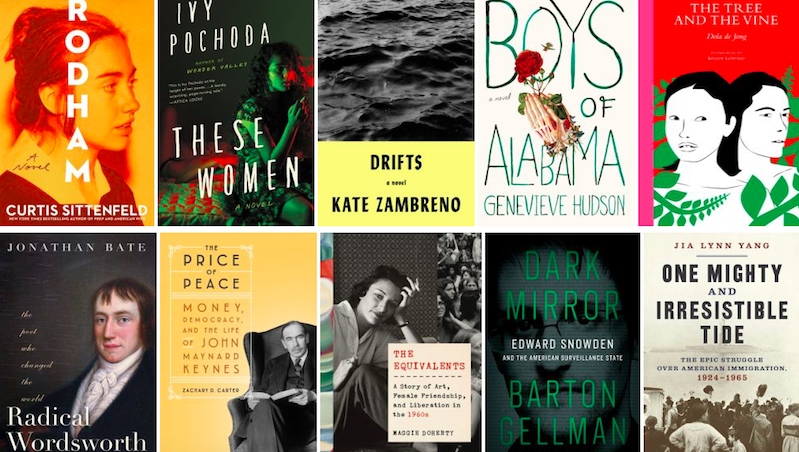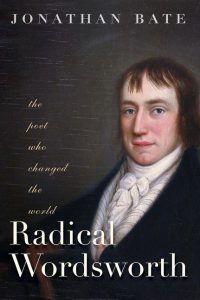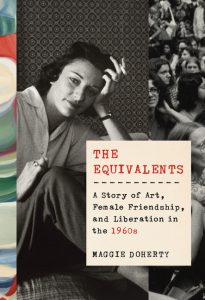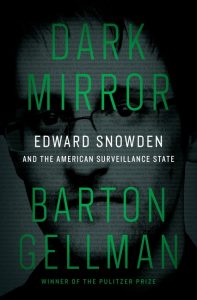
Curtis Sittenfeld’s Rodham, Ivy Pochoda’s These Women, Jonathan Bate’s Radical Wordsworth, and Maggie Doherty’s The Equivalents all feature among the Best Reviewed Books of the Week.
1. Rodham by Curtis Sittenfeld
3 Rave • 13 Positive • 11 Mixed • 3 Pan
“Rodham is a nauseating, moving, morally suggestive, technically brilliant book that made me think more than any other in recent memory about the aims and limits of fiction … If this impersonation feels uncanny, even parasitic, it is … At the same time, it feels less exploitative than some of the ostensible nonfiction written about Clinton. She has been so fictionalized, warped and weaponized by pundits and journalists to fit their chosen narratives that straightforward fiction is almost reassuring in its aims … There’s a seaminess in reading it, too, in satisfying some impulse of prurience or fantasy or grief … Since 2016, a lot of people have taken a grim pleasure in announcing they always knew Clinton would lose. That America is too sexist, too racist, too rotten at the core for it to have gone any other way. There’s relief in thinking like that, in shutting the door, in closing the case. By fanning out alternate narratives, this novel strips readers of the comfortable and cynical knowingness of it had to be like this—you would have had to be stupid to think it wouldn’t be like this. Instead, it asks us to imagine a different world. She could have been different; we could have been different; everything could have been different. And from there, what a short—excruciating, hopeful—leap it is to: Everything could be different.”
–Annalisa Quinn (NPR)
Read Curtis Sittenfeld on folk music, gossip, and politics here
2. These Women by Ivy Pochoda
5 Rave • 4 Positive
“…Ivy Pochoda, in her flawless new novel These Women, has her own angle on the L.A. street, one not only low to the ground, as you might expect, and razor-sharp, but also trained on the women working the most dangerous beat of all … These Women is at first glance a conventional murder mystery constructed on that sturdy old tripod of serial killer, murdered women and dogged female detective. But each of those elements is freshly minted here thanks to the psychological depth granted each character and the graceful twists of Ms. Pochoda’s cunning yet unfussy plot … Essie Perry [is] surely one of crime fiction’s most memorable and convincing investigators … every detail—of the criminal investigation and, equally riveting, of these characters’ lives—draws us deeper into the pulsing, restless city.”
–Anna Mundow (The Wall Street Journal)
3. Drifts by Kate Zambreno
3 Rave • 4 Positive • 1 Pan
“… a kind of inverted mindfulness exercise in book form, fixed on pinning moments down like so many butterflies. Zambreno has abstained from the novelist’s traditional task of keeping a story arc aloft … If this sounds like veiled criticism, it isn’t, though it probably should be taken as a warning to anyone hungry for more conventional fare. But for readers in the mood for an adventure, this is a giddily enjoyable read, emotionally conspiratorial in tone, full of brilliant critical observations and realistic depictions of the dramas in a modern artist’s daily life, the small ones as well as the life-altering ones.”
–Kathryn Justice Leache (BookPage)
4. Boys of Alabama by Genevieve Hudson
2 Rave • 3 Positive • 1 Pan
“. insightful … Hudson invokes the tropes of Alabama to powerful effect: the bizarre fundamentalism; the religion of football; the cultlike unification of church and state. The tropes run the risk of feeling hackneyed, but this is Southern gothic territory, after all. Hudson brings something new to that terrain: an overt depiction of queer desire, welcome because writers such as Capote’s and McCullers’ depictions of queerness were so occluded. A magical, deeply felt novel that breathes new life into an old genre.”
5. The Tree and the Vine by Dola de Jong
1 Rave • 3 Positive
“… despite its subject, The Tree and the Vine is lively, funny … It doesn’t surprise me that the novel, though by no means sexually explicit, was initially considered too shocking to publish…Whereas Patricia Highsmith’s The Price of Salt, appearing under a pseudonym in 1952, notoriously provided a lesbian romance with a happy, or at least hopeful, ending, The Tree and the Vine accomplishes something bolder: It normalizes its characters’ unhappinesses, showing them to be just as complicated as anyone else’s … Bea’s tendency to pathologize Erica’s sexuality—as a ‘wrongness’ she sometimes sees as the result of a troubled upbringing—only highlights de Jong’s refusal to do so, and her recognition that, as with the image of tree and vine, a certain self-defeating twistedness is a natural part of the human condition. And here, when a character is endangered by her love of women, you know it isn’t the author who wants to punish her.”
–Lidija Haas (The New York Times Book Review)
**

1. Radical Wordsworth: The Poet Who Changed the World by Jonathan Bate
6 Rave • 1 Positive
“In his marvellous new biography of Wordsworth, it’s as if Jonathan Bate has inhaled the very air these two young men [Wordsworth and Coleridge] breathed; there is a giddiness here—a passionate enthusiasm—that’s all too rare in books about poets, particularly those who, having failed to die young, grew stodgy in later life … This is a narrative that celebrates the fact that our lives are marked by turning points … There are a few inconsequential (if delightful) details … After I finished his inspiriting, fleet-footed book, in which he embroiders together life, poetry and landscape with such dexterity, I pulled down my old university copy from the shelf. It might have been a bag of pasta, so greedily did I fall on it.”
–Rachel Cooke (The Guardian)
2. The Price of Peace: Money, Democracy, and the Life of John Maynard Keynes by Zachary D. Carter
6 Rave • 1 Positive
“In this sweeping intellectual biography, Carter traces Keynes’ career from his first forays into public policy during WWI, through the bumpy 1920s, and the Great Depression, to its end in the behind-the-scenes negotiations of WWII. He vividly describes Keynes’ world, which encompassed both European realpolitik and the Bloomsbury Group, and illustrates how his academic, cultural, and political activities influenced his ideas … Carter’s timely study is highly recommended.”
–Sara Jorgensen (Booklist)

3. The Equivalents: A Story of Art, Female Friendship, and Liberation in the 1960s by Maggie Doherty
3 Rave • 5 Positive
“…electricity is palpable in Doherty’s pages. I have rarely, if ever, read a work of non-fiction that chronicled relationships like these, with women in conversation about everything except men. Even Sylvia Plath appears without Ted Hughes, befriending Sexton at a poetry seminar in Boston. There were moments when I wanted to know more about the rest of their lives—the troubles in Sexton’s marriage, including her multiple affairs, are mentioned only in passing. But I understood, also, why Doherty focuses so tightly on the Institute. Her book is a love story about art and female friendship … I consumed both Wade and Doherty’s books at a furious speed, scrawling notes in the margins with greater-than-usual intensity, pausing occasionally to let the ideas sink in. The urgency with which their subjects—ten between them, extending across more than a century—negotiated the demands of intellect and life is timeless. Women must undertake that project anew in each generation because the social structures to support it do not exist. We are still trying to figure it out.”
–Ruth Franklin (Harper’s)
Read an excerpt from The Equivalents here

4. Dark Mirror: Edward Snowden and the American Surveillance State by Barton Gellman
3 Rave • 4 Positive
“… engrossing … His wariness makes Gellman a thorough, exacting reporter; it also makes him a marvelous narrator for this particular story, as he nimbly guides us through complex technical arcana and some stubborn ethical questions. Instead of rushing toward a conclusion, he hangs back. He’s clear about what he knows and what he doesn’t. He deploys plenty of metaphors, not to adorn the stakes but to clarify them. He shows how discussions of medieval ramparts and Six Degrees of Kevin Bacon are surprisingly pertinent to the architecture of mass surveillance … His voice is laconic and appealingly wry … would be simply pleasurable to read if the story it told didn’t also happen to be frighteningly real.”
–Jennifer Szalai (The New York Times)
5. One Mighty and Irresistible Tide: The Epic Struggle Over American Immigration, 1924-1965 by Jia Lynn Yang
1 Rave • 5 Positive • 1 Mixed
“With immigration a continuous topic in nearly every national conversation, journalist and editor Yang’s compelling history could not be more timely. Wielding tightly crafted prose, she looks back to the last time this subject was a political flashpoint, taking readers on a dramatic journey through the shifting sands of public opinion in mid-twentieth-century America … There are villains aplenty here and relatively few dedicated heroes and the author does not shy away from the ugliness of anti-immigration rhetoric which has, in more than one case, resulted in death. The combination of meticulous research and captivating writing creates a beautiful surprise; a dark history that gleams under the spotlight of unvarnished truthtelling. Expect a lot of reader requests and award attention for this significant title.”
–Colleen Mondor (Booklist)

